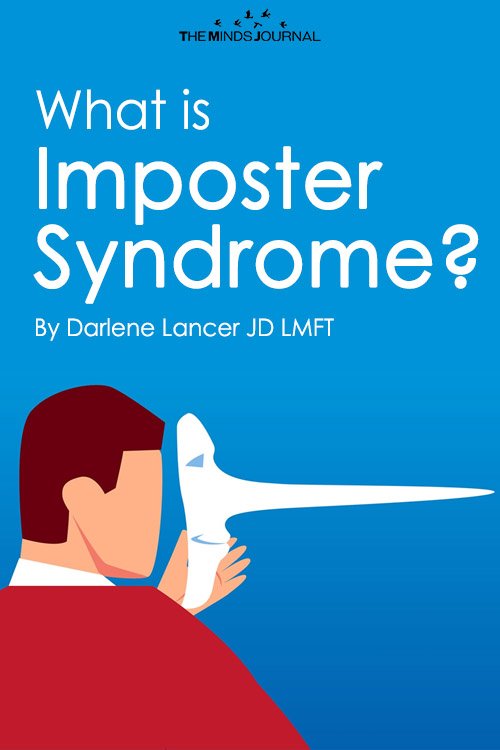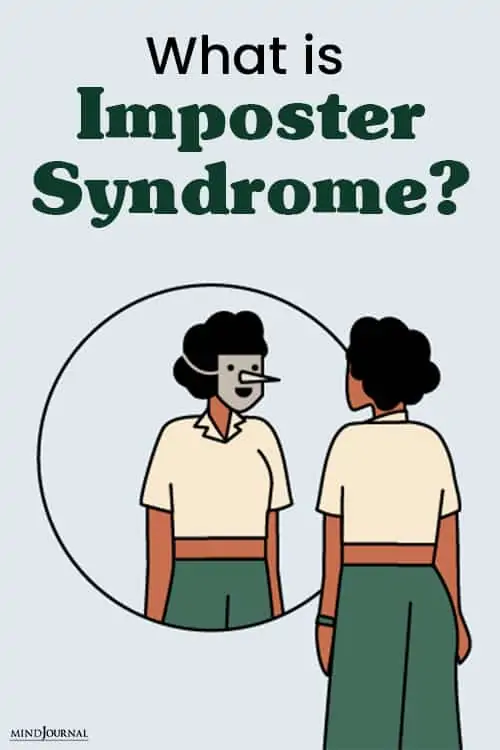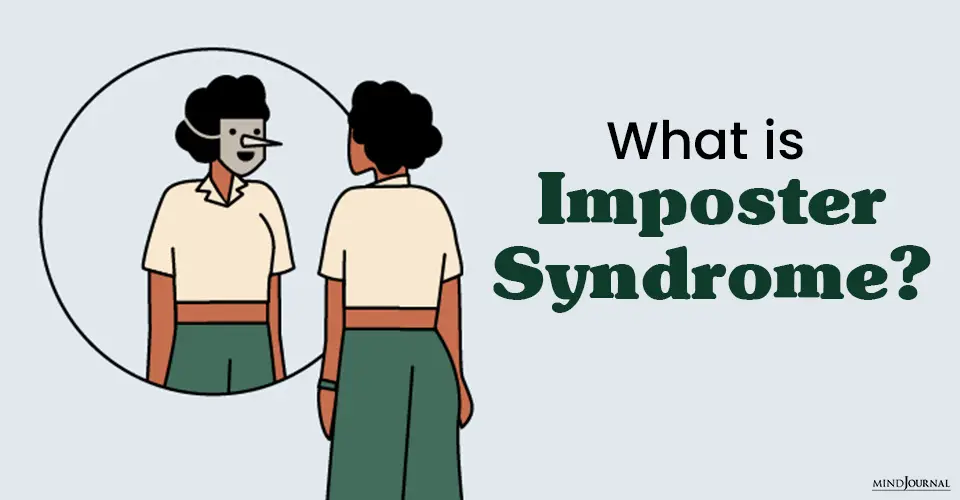Have you ever felt like an imposter or fraud? You’re not alone. Particularly in a professional setting, people may have this feeling, but lack the words to describe it. This is called imposter syndrome, which means feeling like a fraud due to self-doubt and lack of confidence. It stems from low self-esteem that makes us afraid of being discovered and judged inadequate or incompetent.
We’re convinced that we’re really an “imposter,” just tricking everyone. In an intimate relationship, we’re afraid of being found out and left.
The consequence is that even when we excel―get high marks, accomplishments, raises, promotions, or compliments, we feel so undeserving due to deep shame that it doesn’t change our opinion of ourselves. We’ll make excuses or discount our successes. It’s normal to exaggerate or emphasize our strengths on a resume or job interview. However, an “imposter” really feels unqualified in comparison to other candidates―wants the position, but is half terrified of getting it.
Related: How To Defeat Imposter Syndrome and Bring Success Into Your Life
Underlying Shame
The deep underlying shame stimulates fault-finding thoughts when compared to our high expectations of ourselves and others. We also compare ourselves negatively to other people who appear to have it all together. When others make a mistake, we might be forgiving, because we have double standards, judging ourselves more harshly than others.
When we feel like an imposter, we live in constant fear of being found out―that a new boss or romantic partner will eventually realize he or she made a big mistake. Insecurity mounts with every task or assignment about whether we can satisfactorily complete it. Every time we have to perform, we feel like our job, career, family security―everything―is on the line.
One mistake and our façade will crumble, like a house of cards. When something good happens, it must be a mistake, luck, or a warning that the other shoe will soon drop. In fact, the more success we have or the closer we get to a new mate, the greater is our anxiety.
Positive acknowledgment is felt underserved and is written off with the belief that the other person is manipulating, lying, has poor judgment, or just doesn’t know the real truth about us. If we’re offered kindness or promotion, we’re more than surprised. We wonder why-why would they want to do that? If we receive an honor, we feel like it was a mistake. We dismiss it as being routine, very easy, low standards, or no competition.
Additionally, when we do well, we’re afraid that we’ve now raised others’ expectations and will likely fail in the future. Better to have a low profile than risk criticism, judgment, or rejection.
Though other people might like us, inside we feel flawed, inadequate, a mess, a disappointment. We imagine others are judging us for things that in reality they didn’t even notice or long forgotten. Meanwhile, we can’t let go of it and even judge ourselves for things we can’t control―like a computer glitch that delayed completing something on time.
Low Self-Esteem
Low self-esteem is how we evaluate and think about ourselves. Many of us live with a harsh inner judge, our critic, who sees flaws that no one else notices, much less cares about. It tyrannizes us about how we look, how we should act, what we should have done differently, or should be doing that we’re not.
When we’re self-critical, our self-esteem is low, and we lose confidence in our abilities. Our critic also makes us sensitive to criticism, because it mirrors the doubts we already have about ourselves and our behavior. Moreover, we imagine other people think what our critic thinks. In other words, we project our critics onto other people. Even if when questioned, they deny our assumptions, we likely won’t believe them.
Related: 10 Habits That Cause Low Self Esteem And Depression
Imposter Syndrome in Relationships
Healthy relationships depend on self-esteem. These imposter fears can cause us to provoke arguments and assume we’re being judged or rejected when we’re not. We may push people who want to get close to us or love us away for fear of being judged or found out.
This makes it hard to have a committed, intimate relationship. We might settle for someone who needs us, is dependent on us, abuses us, or in our mind is in some way beneath us. This way, we’re assured they won’t leave us.
Cognitive Distortions
Shame and low self-esteem lead to cognitive distortions. Our thoughts often reflect thinking that is shame-based (“should’s” and self-criticisms), inflexible, black and white, and negative projections. Other cognitive distortions include overgeneralizing, catastrophic thinking, and hyperfocus on details, which obfuscate the main objective.
Our shame filters reality and skews our perceptions. A typical pattern is to project the negative and dismiss the positive. We filter reality to exclude the positive while magnifying the negative and our fears. We take things personally and overgeneralize something small to condemn ourselves and our potential.
We use black and white, all-or-nothing thinking to rule out a middle ground and other possibilities and options. We believe I must be perfect and please everyone (impossible) or I’m a failure and no good. These thinking habits distort reality, lower our self-esteem, and can create anxiety and depression.
Related: How Cognitive Distortions Harm Us
Perfectionism
Many people with imposter syndrome are perfectionists. They set unrealistic, demanding goals for themselves and regard any failure to achieve them as unacceptable and a sign of personal worthlessness.
Perfection is an illusion, and perfectionism is driven by shame and reinforces shame. The fear of failure or making mistakes can be paralyzing. This can lead to avoidance, giving up, and procrastination. Our inner critic interferes with our attempts to take risks, achieve, create, and learn. The disparity between reality and our expectations generates internal conflict, self-doubt, and fear of mistakes that cause suffering and serious symptoms. (To overcome perfectionism, do the exercises in the e-workbook: “I’m Not Perfect – I’m Only Human” – How to Beat Perfectionism.)
We can overcome shame, low self-esteem, and perfectionism by changing our thoughts and behavior, healing our wounds, and developing self-compassion. Do the steps in Conquering Shame and Codependency: 8 Steps to Freeing the True You.
© Darlene Lancer 2019
Written by Darlene Lancer JD, MFT
Originally appeared on WhatIsCodependency.com










Leave a Reply
You must be logged in to post a comment.